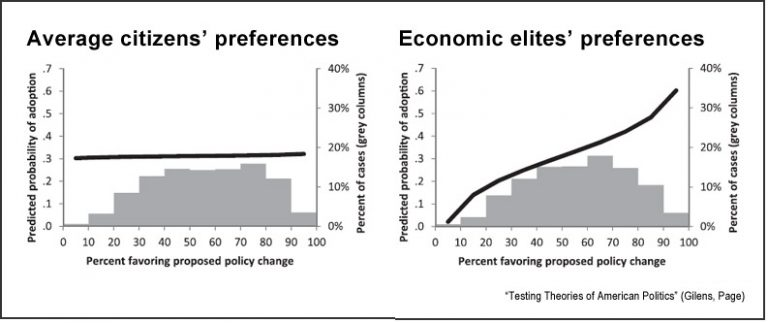
- Regardless of whether a small minority or a large majority of American citizens support a policy, the probability of policy change is nearly the same — approximately 30%.
- A proposed policy change with low support among economically elite Americans is adopted only about 18% of the time, while a proposed change with high support is adopted about 45% of the time.
- Interest groups have a substantial impact on public policy. When mass-based and business-oriented interest groups oppose a policy, the probability of its being enacted is only 16%, rising to 47% when they’re strongly favorable. “On the 1,357 proposed policy changes for which at least one interest group was coded as favoring or opposing change, in only 36% of the cases did most groups favor change, while in 55% of the cases most groups opposed change.”
- Overall, business-oriented groups have almost twice the influence of mass-based groups.
- While the popular belief is that professional associations and interest groups serve to aggregate and organize average citizens’ interests, the data do not support this. The preferences of average citizens are positively and highly correlated with the preferences of economic elites but not with those of interest groups. Except for labor unions and the AARP, interest groups do not tend to favor the same policies as average citizens. In fact, some groups’ positions are negatively correlated with the opinion of the average American, as in the case of gun owners.
Sources

